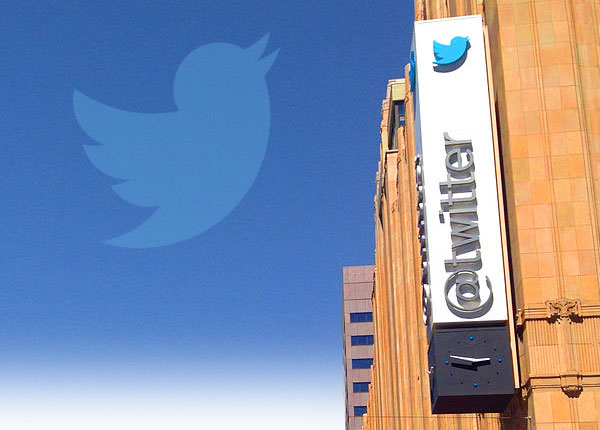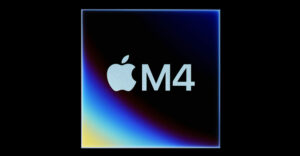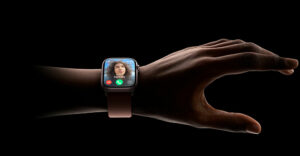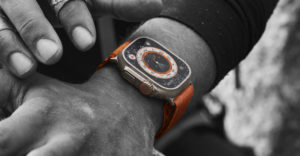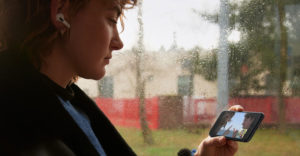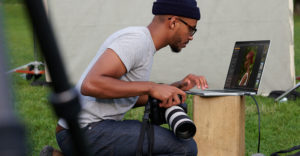Twitter fans who want to dress up pix they post to the service can do it with #Stickers, a new feature announced Monday.
“Soon, you can browse our rotating sets of stickers to join in on real-time conversations, and select from the library of hundreds of accessories, emoji, and props to make your photos more fun,” said Sasank Reddy, a senior product manager at Twitter.
Coming soon! Unleash your creativity by adding fun #Stickers to your photos on Twitter: https://t.co/Ph92Oivyhy pic.twitter.com/NZoM6nHenD
— Twitter (@twitter) June 27, 2016“Use them to share what you’re doing or how you’re feeling, to show support for a cause, or to just add some flair. You can use multiple stickers on a photo, resize and rotate them and place them anywhere on your picture,” Reddy said.
What’s more, after tweeting a photo with stickers, the pic becomes searchable in a new way. Tapping the sticker will take you to a new timeline where you can see how people all over the world have used the sticker.
Connect your photos to the world with a visual spin on hashtags: tap #Stickers to peel back a fun new way to search. pic.twitter.com/YVy7r53Nja
— Twitter (@twitter) June 27, 2016 #Stickers will be rolling out for iOS and Android “over the next few weeks,” Reddy noted.
Youth Magnet
By introducing stickers to its service, Twitter is joining a number of other apps that have embraced the cartoon as a form of embellishment.
“The target market is likely mostly younger people who have become accustomed to using stickers and filters in messaging apps and will appreciate them being present in Twitter too,” said Jan Dawson, chief analyst with Jackdaw Research.
“They’re certainly very popular in major Asian messaging apps,” he told TechNewsWorld. “LINE makes about a quarter of its revenue from selling stickers and similar products to users of its messaging apps.”
LINE, which is very popular in Japan, is an app for instant communication of text, images, video and audio, as well as transmission of VoIP calls and video conferences.
“LINE is the No. 5 top grossing app in our top 52 app ranking,” noted Ross Rubin, senior director for industry analysis at App Annie.
“Stickers have been a large contributor to that revenue,” he told TechNewsWorld.
Franchise Potential
LINE has been able to spin off merchandise lines based on sticker characters and even open a chain of retail stores in South Korea, China and Japan for sticker-inspired products, according to Rubin.
“Stickers have the potential to become a tremendous franchise,” he said. “They can be a revenue opportunity for Twitter.”
In addition to stickers, Twitter offers a number of other photo-editing features such as filters, tags, cropping, and adding descriptions to images.
“Filters and other similar features are also very popular on Snapchat, but Twitter seems to have a unique spin here,” Jackdaw’s Dawson said.
“Making stickers on other people’s pictures clickable and searchable is a likely way to make the feature more discoverable, but stickers are in some ways a poor fit with how Twitter is used by many people, which is more about public interactions than private sharing,” he explained.
Mona Lisa’s Mustache
Adding features found on other platforms isn’t likely to diminish the unique appeal of Twitter, said AppAnnie’s Rubin. “Just because it supports stickers doesn’t detract from its differentiation as this real-time feed of what’s happening in people’s lives and around the world.”
In fact, adding stickers to the Twitter portfolio could help engagement at the service, he suggested.
“Stickers have had a positive impact on many of the other apps that have adopted it,” Rubin pointed out.
Although adding stickers to an image strikes some photographers as akin to painting a mustache on the Mona Lisa, others have a more positive view.
“A lot of serious photographers adopt some of these new technologies as a different kind of art form,” said David D. Busch, creative director of the David Busch Photography Guides.
“It’s similar to creating collages and extreme PhotoShop processing,” he told TechNewsWorld. “I can see some serious photographers taking advantage of this to create a new form of art, but it will be most widely used by consumers.”

